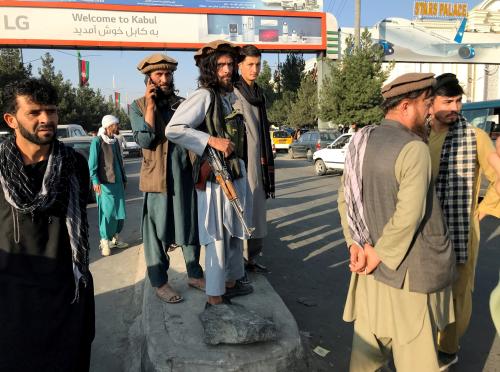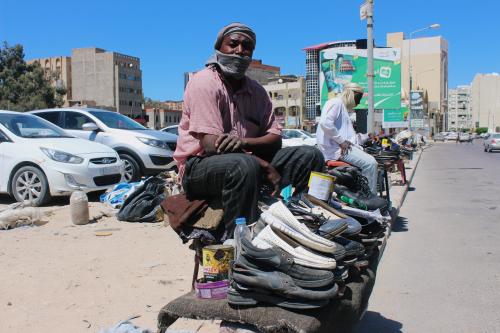The Organization for Security and Cooperation in Europe (OSCE) has recognized that the voting rights of internally displaced persons (IDPs) should be a matter of “special scrutiny.” To assist the OSCE, a new report by the Brookings Institution-Johns Hopkins SAIS Project on Internal Displacement examines the extent to which IDPs in the OSCE region, who currently number some 3 million, are able to exercise their right to vote.
Entitled The Voting Rights of Internally Displaced Persons: The OSCE Region, the study assesses the voting rights of IDPs in all thirteen countries in the OSCE where there are internally displaced populations. While noting that progress has been made in helping IDPs exercise their right to vote, the study also finds that many IDPs continue to face obstacles in exercising this right, sharply reducing their influence over the political, economic and social decisions affecting their lives. To address these concerns, the study puts forth a number of recommendations for particular countries as well as for the OSCE.
Written by Erin Mooney and Balkees Jarrah, the report will be presented at the OSCE Supplementary Human Dimension Meeting on Internally Displaced Persons in Vienna on 4-5 November 2004 so as to assist the OSCE, its participating states and civil society partners to devote greater attention to the voting rights of the internally displaced. The conclusions and recommendations of the report follow.
Conclusions and Recommendations
The OSCE’s Copenhagen Document of 1990 stipulates that every person who has the right to vote be allowed to exercise this right without distinction of any kind. Voters do not lose this right because they are internally displaced. And yet, many IDPs in the OSCE region experience difficulties voting. In particular, this study finds that IDPs have experienced obstacles such as:
- lack of documentation;
- discriminatory practices;
- obsolete and restrictive residence requirements, ie. propiska;
- inadequate arrangements for absentee voting;
- lack of timely and adequate information about IDP voting arrangements; and
- insecurity and acts of intimidation.
All of these restrictions have hampered voting by IDPs in recent elections within the OSCE. In some cases the difficulties that IDPs face in voting are well documented whereas in others, an absence of monitoring and reporting on their particular situation has meant that many problems go unreported and unaddressed. To this end, the following ten recommendations are put forth:
First, the OSCE should devote greater and more systematic attention to the voting rights of IDPs, both at the policy level and in the field.
Second, OSCE election monitors must be sensitized to the particular challenges IDPs often face in exercising their voting rights and should report on as well as work to address any such difficulties.
Third, participating states of the OSCE should ensure that national electoral legislation is in line with international human rights standards and enables IDPs to fully and freely exercise their right to vote.
Fourth, national and local authorities responsible for the administration of elections should be sensitized to the particular challenges that IDPs often face in exercising their right to vote and should receive guidance on how best to address these challenges.
Fifth, voter registration processes must reach and systematically include internally displaced voters.
Sixth, IDPs should have the option of having their vote count either in their place of origin or in their place of temporary residence. To enable IDPs to cast their ballot in their place of permanent residence, special arrangements such as absentee voting facilities and transportation should be put in place.
Seventh, IDPs must be able to cast their ballots in a secure environment. Under no circumstances should displaced voters be required to return to or traverse unsafe areas in order to exercise their right to vote.
Eighth, IDPs should be given a say in the design of any special electoral procedures created to address their particular situation.
Ninth, information on voting arrangements as well as campaign material should be available to IDPs in a language that they can understand and be accessible to those with low literacy.
Tenth, civil society should be encouraged and supported to play a significant role in promoting awareness among IDPs of their voting rights as well as in monitoring and reporting on the extent to which IDPs are able to exercise these rights.

